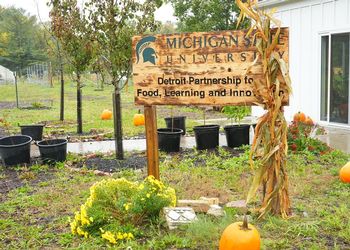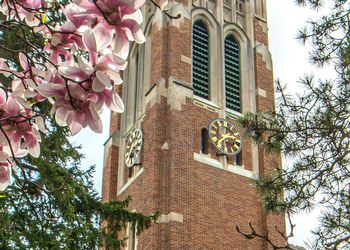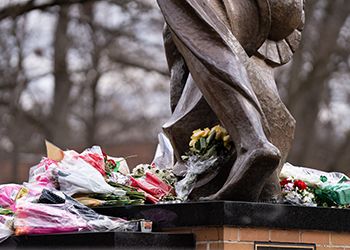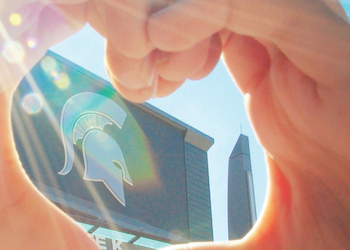How DPFLI is redefining community and food

The Detroit Partnership for Food, Learning and Innovation, or DPFLI, is Michigan State University’s first and only urban agriculture center. A part of MSU Extension, the program’s mission is to improve the quality of life and well being of Michigan residents.
The site is located on 3.3 acres in northwest Detroit on a former public school property. The DPFLI provides technical services to gardeners and farmers, programming related to urban agriculture and food systems for community members, and environmental conservation educational opportunities.
Naim Edwards has been the director of the DPFLI for the past six and a half years. During that time, he said one of his goals has been “finding novel and innovative ways that the site [can] contribute to the urban agriculture fabric and the city.”
One initiative that the DPFLI offers is an edible forest. Edwards said that while most gardens or farms typically only grow vegetables, this forest grows over 55 different types of fruits and nuts. The fruits range from more common ones, such as strawberries and peaches, to less familiar plants, such as elderberries and sea buckthorn.
“We want to show people that there are a ton of other plants that people can be growing for nourishment and food production, aside from common vegetables.”
After harvesting local ingredients, members of the community are invited to join at the pizza oven where the DPFLI offers free pizza and unique toppings for people to experiment with.
“The pizza oven simply creates an opportunity to not only enjoy some of the stuff we grow at the farm…but it's also an opportunity to just show how food helps connect people.”
One way the DPFLI partners with MSU organizations is through bringing in volunteers with the Multi Racial Unity Living Experience - Intercultural Aide program, or MRULE-ICA. The experience allows for students to connect with each other away from campus, while also beautifying the DPFLI site.
“I think MRULE also has a kind of a pillar or a value of lifting up diversity and inclusion and it's an opportunity to show how people with different backgrounds or different beliefs work together. We can often achieve, or generally achieve, improved outcomes, even if we're simply cleaning up the space.”
Edwards said that one of the most rewarding parts of his work is educating members of the community about unique plants at the site and watching them recognize those plants out in the world. Another impactful aspect for Edwards is helping others deconstruct the misconceptions they may have about the food system.
“We really want to show people that food is something that can be shared, something that can be free, something that can be fresh and local, and it doesn't have to come from far away places or be wrapped in paper or plastic”
To learn more about the work the DPFLI is doing, visit their website.
“What we do at the DPFLI is capable of being done anywhere where there is soil. I think it's valuable for people to know that whether you're on MSU’s campus, whether you're in another state or another country, where there is soil, where there is grass and trees, usually there are plants that people don't recognize and people don't eat. I'm simply advocating for incorporating more edible food into all those spaces, so hopefully, whenever people come to our site, they can envision a world that looks more snackable.”



